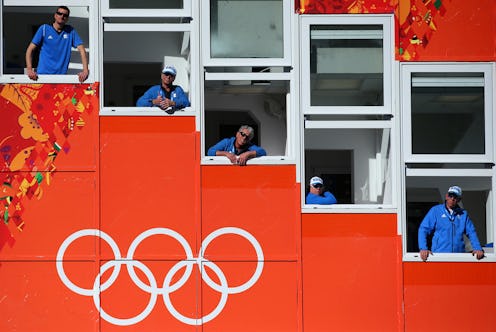News
Here's How The Olympic Judges Are Selected
Judges are already the topic of conversation surrounding the Rio 2016 boxing competition. There are allegations that the winners of some of the fights, or bouts, may be decided in advance. The Guardian reported that the global governing body of the sport has been corrupted, according to a few officials the paper interviewed. But in the year 2016, how can that be? Evidently with boxing, this has been brought up at several of the last Olympic Games, believe it or not. But, in that case, how are Olympic judges selected?
It's different for every sport, because the international governing body of each sport sets their own rules. These international federations set the rules for choosing a judge, a referee, or anyone else vital to the sport's results or markings. Take, for example, gymnastics. To become a judge at the Olympics, as an American, the first thing you would need to do is join United States Gymnastics as a member. You pay a fee. Then you need to pass levels of tests, one at a time, before widening your expertise to include the international regulations. Then you develop your reputation for judging fairly. Only then would you be considered for the judges' draw.
The key, at least in gymnastics, is maintaining your lack of bias. Just last month the International Gymnastics Federation sanctioned eight judges for "flawed or unsatisfactory" judgments. They will be on the sidelines for the next three to six months, depending on their infractions — but either way no Rio 2016 for them. All international federations are looking to avoid the fate of figure skating at the Winter Olympic Games, which went through a scandal during the 2002 games in Salt Lake City. A judge was accused of blatant cheating.
After the 2012 games in London, The Wall Street Journal ran a piece on Olympic judging and fairness. Essentially every sport has tried to prevent bias, but it is really hard. In gymnastics, the high and low scores are thrown out. The common problem — conscious or not — is that judges tend to rate athletes from their own countries higher. There are very few solutions for this, the investigation found, but there are some options.
One would be to increase the number of judges to prevent one person from having too much an influence. Some sports only allow one judge per country. Others release all the individual scores to the public after the event. These have been proven to work in dressage, an equestrian sport. Whether it's expanded to more sports depends, of course, on each one's individual federation. So put your trust in the judges, or don't, but there is a big effort in most sports to keep things fair.
